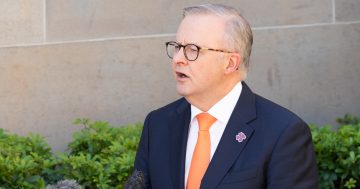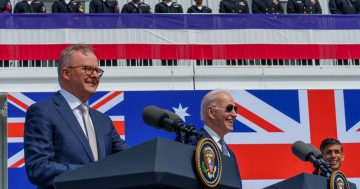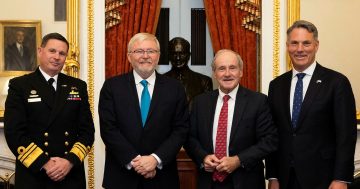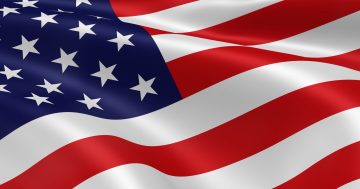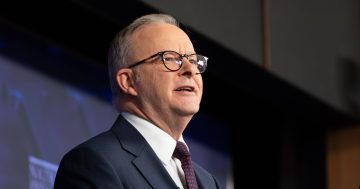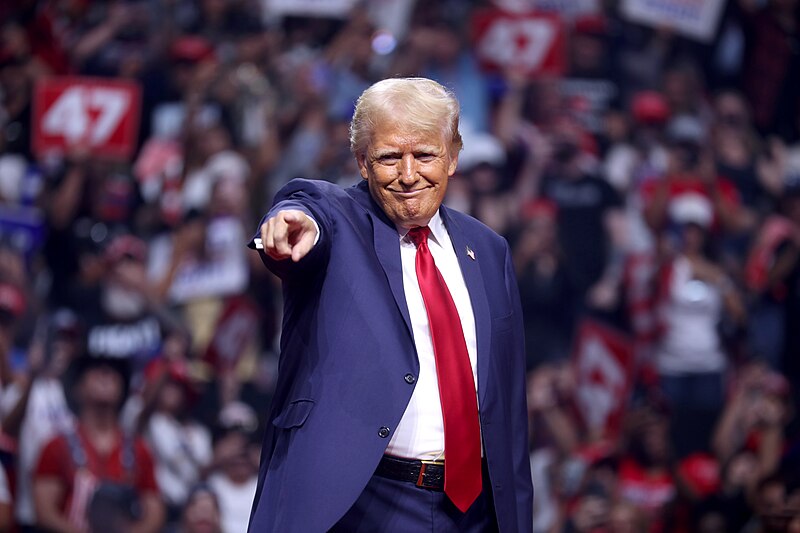
The return of Donald Trump is reshaping the thinking of politicians, policymakers and the bureaucracy. Photo: Gage Skidmore.
The American election result has big policy implications for Australia.
While a great many Australians are trying not to think about the result of last week’s US election, the truth of the matter is it can’t be ignored.
That is infinitely more the case for this nation’s politicians, policymakers and bureaucracy.
There are so many policy areas that will be affected by the return of a Trump presidency, and we’ve already heard plenty of commentary from our domestic players about some of them.
In his most recent address (Monday 11 November), Treasurer Jim Chalmers flagged what will likely be a time of significant change for Australia.
“Obviously, a new administration in the United States brings a new suite of policies,” he said.
“We are confident that we can navigate that change as partners.”
Let’s pick three policy areas and canvass what has already been said about them by some Australian politicians.
The big issues of trade, AUKUS and climate change have been on their minds.
On the matter of trade, Trump campaigned on a promise to introduce tariffs of between 10 to 20 per cent on all goods coming into the US.
For Chinese imports, the tariffs would be at least 60 per cent.
Here, the Federal Government and the Federal Opposition seem united on how Trump’s trade agenda could impact Australia.
Asked about it on morning television on Monday, Environment Minister Tanya Plibersek and Nationals frontbencher Barnaby Joyce were in agreement – a rare thing for those two.
“Australia is a trading nation. We worked really hard to drop tariffs on Australian goods going into China,” Ms Plibersek said.
“We continue to advocate for low or no tariffs on Australian goods because we know that is in our national interest.”
Asked the same question, Mr Joyce had no argument.
“Basically agree with everything that Tanya said on that one,” he said.
“A trade war would be very bad. You take away our capacity for trade.
“You take away all those accoutrements and benefits in your lifestyle, just have a look around your house and see what was imported.
“If we don’t trade, you haven’t got any of that.”
In a separate media interview, Tasmanian Senator Jacqui Lambie expressed her concern, saying Donald Trump “changes his mind more than he changes his underpants” and his trade position posed serious problems for Australia.
“If he puts those tariffs on China like he said and he puts tariffs on us, if he thinks that’s not going to affect us, then I’ve got news for him,” she said.
“That’s going to affect us very terribly, badly, in the years to come.”
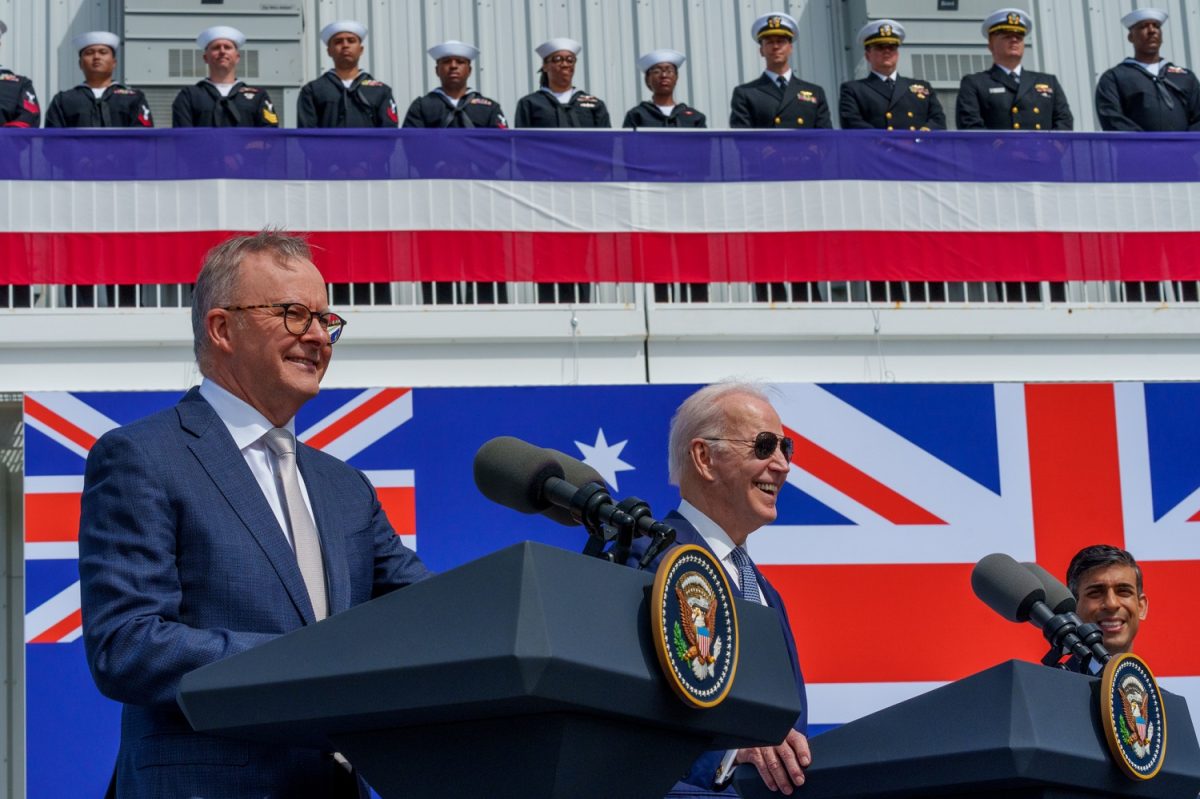
Prime Minister Anthony Albanese, US President Joe Biden, and British PM Rishi Sunak announced the AUKUS submarine arrangement in San Diego in March 2023. Photo: PMO social media.
So what about AUKUS?
The government thinks the nuclear-powered submarines deal between Australia, the US and the UK will be safe.
Just ask Pat Conroy (which the ABC did), who was speaking on the topic while Acting Defence Minister.
He is “very confident” all will be fine.
“It’s in the strategic interests of all three countries involved,” he said.
“This is not charity. This is about the three countries enhancing our defence capability … This is a multi-decade-long commitment … It will survive changes of government across all three countries.”
That’s yet to be seen, as Mr Trump has already stated that his pro-AUKUS former secretary of state, Mike Pompeo, won’t be in his new cabinet.
Labor’s former foreign minister Bob Carr, speaking on Tuesday, expressed a view that it is inevitable the AUKUS agreement will not stand as it is, but will be significantly changed once Trump assumes office.
Climate change offers even more intrigue as a policy front facing a potential overhaul.
Right-wing Coalition backbenchers are already calling for the Opposition to withdraw its support for the net zero by 2050 pledge, citing an opportune time to do so now that Trump is headed for the White House.
As recently as June this year, Opposition Leader Peter Dutton reaffirmed his party’s 2050 commitment but shed doubt on the legislated earlier emissions reduction target of 43 per cent by 2030.
“We’ve got a strong commitment to net zero by 2050, but we’ve got to be realistic about where families are at the moment,” Mr Dutton said then.
A growing number of Liberals-Nationals backbench are now pushing for a rethink of the 2050 commitment, using Trump’s recalcitrance on climate change policy as the catalyst.
Nationals leader David Littleproud, however, is pushing back, saying the Coalition will not be reconsidering its position.
The Opposition will continue to support the net zero by 2050 target, but if elected to government next year, it will take a measured approach.
“While President Trump’s made some soundings about that, you have got to understand your place in the world,” he said.
“They are 330 million people, we’re 27 million people. We’re a trading nation.
“The only people that will hurt out of that [dropping support for the 2050 target] will be our farmers and mining sector … The world has all signed up to this.
“We will do it in a uniquely Australian way, and we’ll take our time to do it and do it properly so that there isn’t an impact on the economy.
“We will have a balance. We’ll do it properly. We’ll do it sensibly. But I think we should just take a deep breath on trying to be Trump-esque here in Australia because there are unintended consequences, and they are farmers and miners.”
Those three examples alone (and there are many more policy areas sparking increased domestic debate in Australia since the election of Donald Trump in America) give some insight into how far-reaching a change in the US Administration can be and just what’s at stake for Australia.












